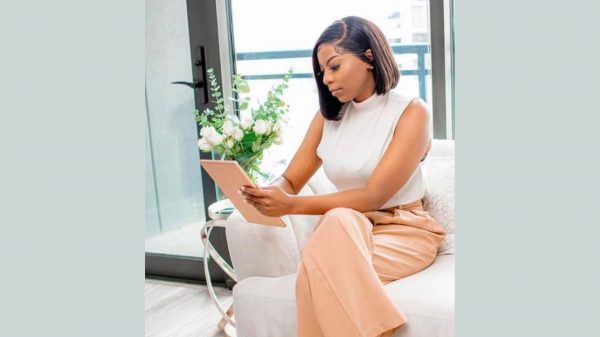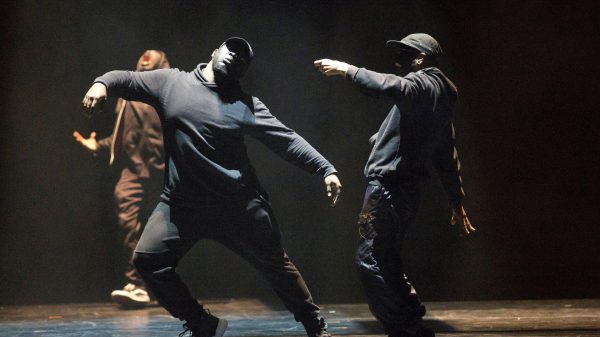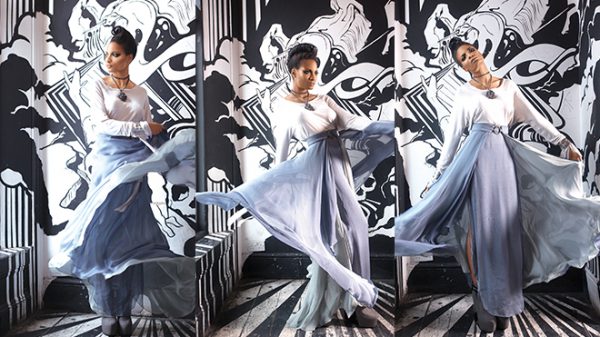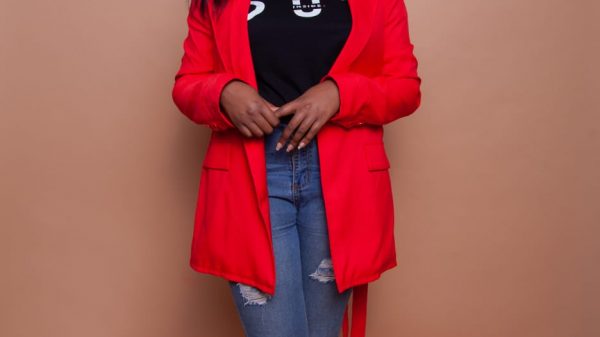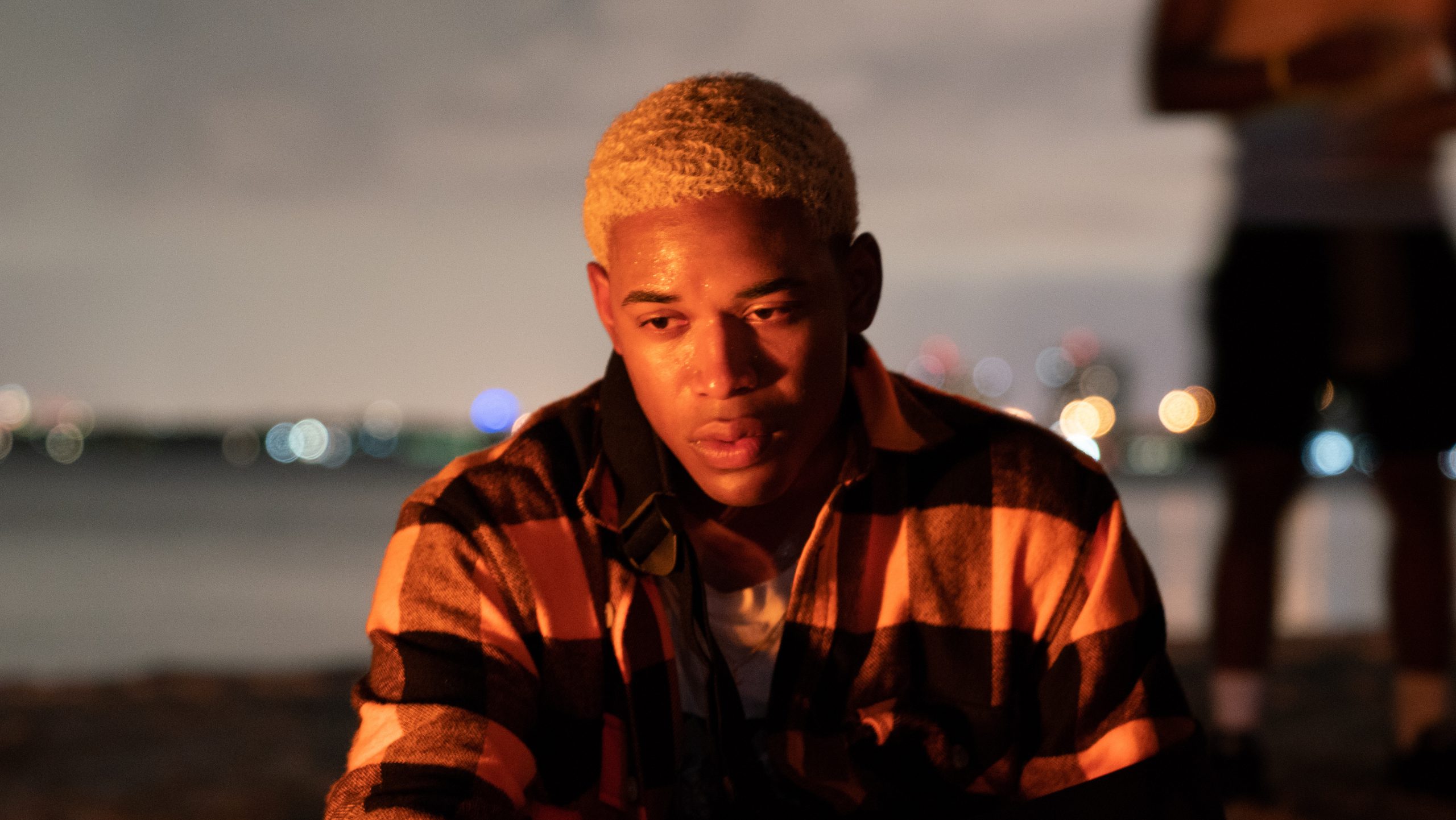Emmanuella Ngimbi speaks to Trey Edward Shults and Kelvin Harrison Jr, the writer-director and the lead actor of new, heartbreaking film Waves ahead of its international release
We’re willing to bet that most people reading this will be familiar with the following phrase: ‘You have to work twice as hard to get half as far.’ It’s a saying that Black people in particular, regardless of where you are in the world, are taught as a reference to ‘making it’ in a biased society. But even when you work twice as hard, and seem to be on a path to complete success and lifelong prosperity, there are no guarantees that life will work out the way you’ve prepared.
Waves, the new picture by acclaimed filmmaker Trey Edward Shults, explores exactly this through the story of a suburban African-American family navigating love and forgiveness while struggling to connect after a sudden loss. Though equal parts harrowing and heartbreaking, it teaches unending lessons in compassions and growth, even in the darkest times.
To protect you from spoilers, we won’t say too much about what happens, plot-wise – however, the story is told in two parts, from the perspectives of the children of the family: Tyler (Kelvin Harrison Jr.), a high-school star wrestler and younger sister Emily (Taylor Russell), introverted and thoughtful. With Sterling K. Brown, Renée Elise Goldsberry and Alexa Demie also in key roles, it’s a film that bursts with talent throughout. Ahead of its release, we sat down with director and writer Trey Edward Shults and lead actor Kelvin Harrison Jr. to discuss masculinity, family dynamics and for one of the first times how a director came to collaborate with the lead actor for a new perspective.
Trey Edward Shults
Congratulations on Waves, what a film! Where did you get the inspiration for the story?
Trey Edward Shults: There’s stuff from my family’s life, my girlfriends’ life, from Kelvin’s [Harrison Jr.] life… It was about living through experiences, having perspective, and then putting that into the film. The whole movie functions in circles between what’s real and fiction. Everything I’ve made so far has been really personal, so this felt like a continuation of drawing on the personal, then going bigger and outside myself in the right way.
A lot of the story is filmed in a car; why did you want to include this?
It happened organically; when I was that age in high school, the two places that were mine was my room and my car. It felt right for the spirit of the movie, and at that age, your car is a huge important space so it felt right to have major scenes and shots connected to cars.
What made you decide to put a Black family at the centre of Waves?
It was all Kelvin. We met on my last movie, It Comes At Night – we loved each other and wanted to work together again and he was attracted to the role of Tyler. When I started trying to write Waves, Kelvin and I were doing these mini therapy sessions talking about our experiences, and me trying to understand Kelvin’s perspective on some things, his family dynamics. For myself being white and telling this story it needs to feel specific and authentic to this black family and if it doesn’t, it doesn’t work. That’s why working with Kelvin so closely really was everything.
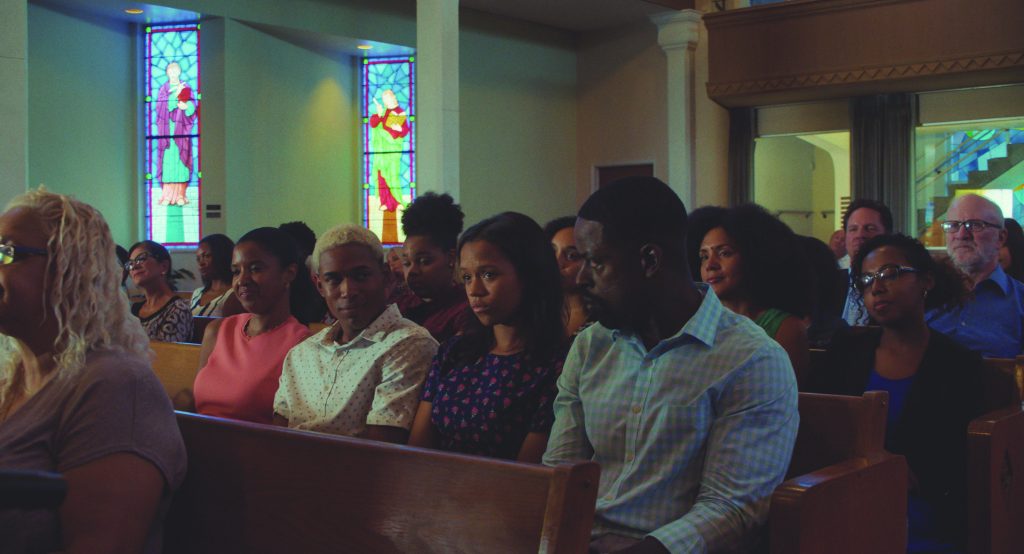
Renée Elise Goldberry, Kelvin Harrison Jr, Taylor Russell and Sterling K Brown
The whole movie has an edge of your seat dynamic. How did you manage to maintain this, all the way through?
Tyler and Emily are motivating everything with the film; it’s meant to be immersive, experiential and subjective with their experiences. Plot-wise, it’s not the most traditional narrative, edge of your seat experience. The goal is to immerse you and make you feel how they’re feeling. For them this is their world; it’s urgent, so we’re just trying to make it honest to that.
Let’s talk music – from Blood Orange, to Frank Ocean, to Alabama Shakes, there are some really amazing song choices! Each song in the movie really cemented the emotion in each scene. How did you choose the music?
I think what it originated back to was how huge music was for me in high school and how it got me through some stuff. Like, if you go on Tyler or Emily’s iTunes and found a playlist, it would echo the music being used in the movie. I wanted it to not just dictate ebb and flow but also bring you closer to the characters and their world.
Throughout the movie, there were many different themes of masculinity: strict dad, ambitious son and the caring boyfriend. What kind of masculinity do you relate to?
I guess all of it equally, more or less… I’d say the strict father was much like mine and Kelvin’s father – but I connect to Tyler a lot, as I struggled with anger in my life and I tore my shoulder wrestling.
Water also seems to be a key element in the movie – is this one of the reasons for its title, Waves?
I think it’s one of many reasons! If you connect to the movie, the title could mean different things for you. It’s set in Florida, where there’s lots of water – I love water, I’d rather be in water all the time.
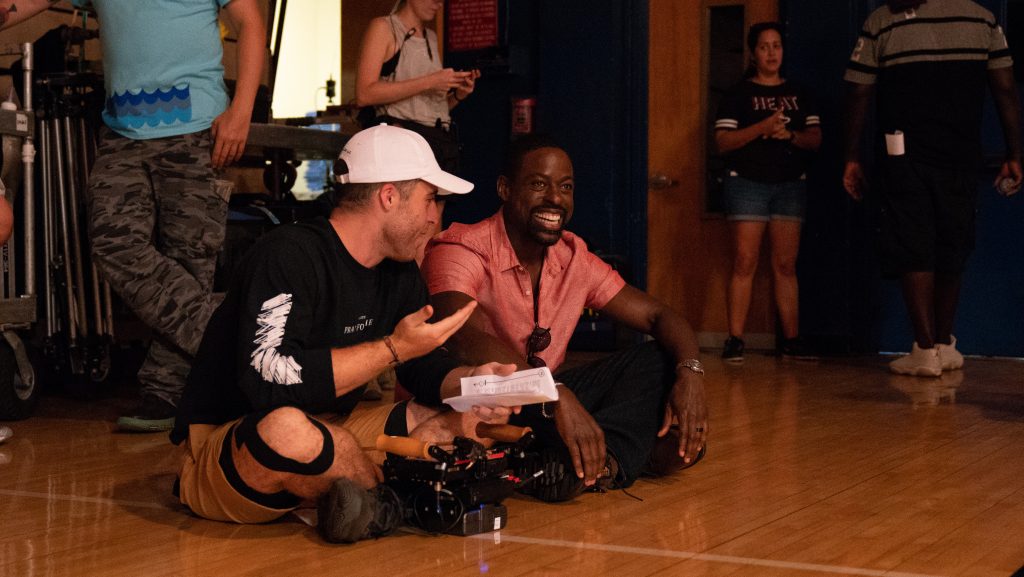
Kelvin Harrison Jr.
Congratulations on Waves, how did you know this movie was right for you?
Kelvin Harrison Jr: I trusted Trey. I trusted our director, I loved him so much as a person. It wasn’t until I saw the script and it registered to me as complicated something that we are still asking for. This is a beautiful opportunity to show young black boys that come from a middle-class family and actually have so much opportunity and privilege but still feel the pressures of the history that come before us to get to this place, and what is that experience like when we’re still trying to figure out what is the next step to thrive.
Tyler was under a lot of pressure at 17, trying to balance school, wrestling, working in the family business and his girlfriend Alexis. How was it embodying a character with so much on their plate?
Emotionally it was tough – I took a lot from people that I knew. I had a cousin that went to prison, and at one point got out and was just being violent. You’d wonder, ‘How did this boy get to this point?’ Technically, I never wanted it to feel like an acted performance so trying to project the wisdom that I’ve attained and go: ‘This is what he might do as a 17-year-old kid that’s trying his best every day, figuring out what the heck’s going on in his life’.
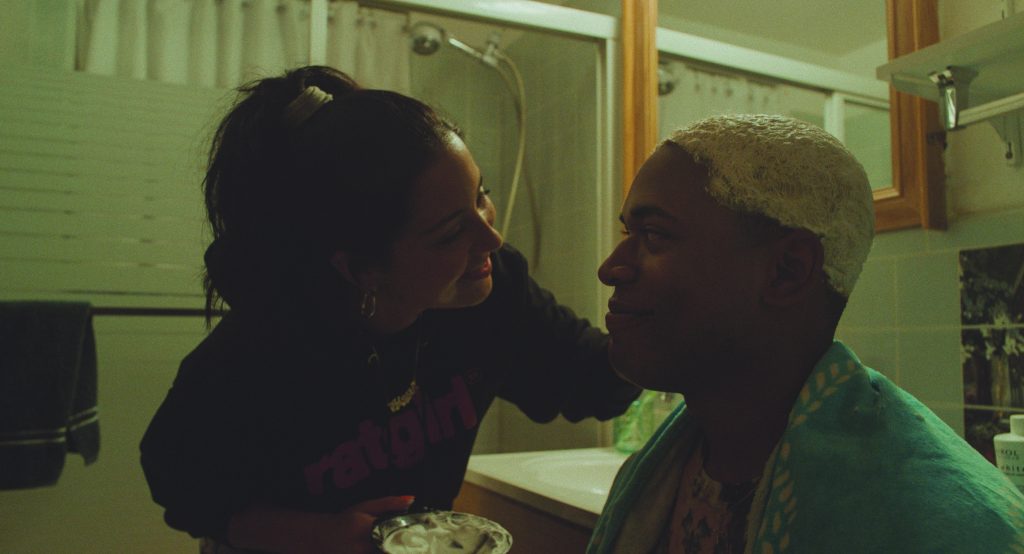
Was there a lot of preparation involved to get the wrestler’s physique?
I don’t play sports. I don’t like them and I’m not good at them, but we had to do three months of wrestling training. I would do an hour of cross fit in the morning, wrestling in the afternoon and evening. Then wrestling on Saturdays for at least a couple of hours. I was also eating a bunch of food and gaining weight. I went from 115 to like 160 (52.1 kg to 72.5kg) – it changed my whole mindset.
Much like Tyler, many Black men go through the internal battle with masculinity and the pressures that come with it. Is this something you can relate to?
When I was a kid if I was upset or crying about anything my dad would say be a man, be tough, don’t let anyone push you over and fight them back. I remember being like, “I don’t want to,” because I didn’t have this instinctual desire to do that. It made me hate myself more; it made me feel like “I’ll never be a man,” so I always felt like I was playing catch-up and I started to resent the man I never thought I could be. This pressure challenges your self-worth and that just completely messes with your psychology.
Tyler struggled to communicate his emotions and didn’t want to look weak in front of his father or girlfriend; do you think this contributed to his downfall?
Absolutely – I think he felt like he never had a space to communicate to the people he cared about. He looks up to his dad but his dad is not communicating, so he does what he sees. Tyler loves his girlfriend Alexis (played by Alexis Demie) so much, but when it comes to certain things he doesn’t have the emotional vocabulary to express what he’s trying to say, and it’s to his own detriment. I wish that he had enough understanding that his mum was a safe space to go to – she always told him she was there to support and love him. I wish I could tell him to go home, take a nap and at least tell your mum.
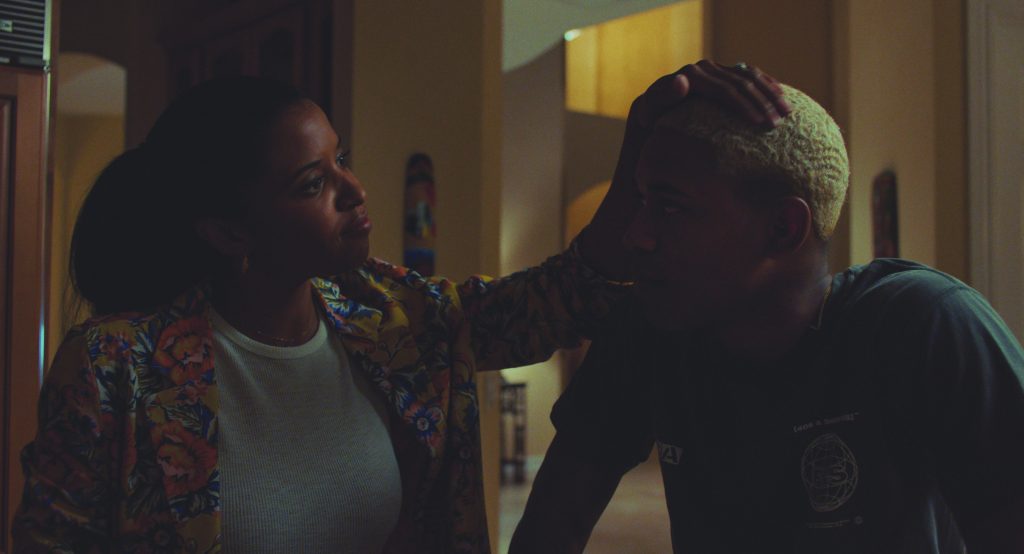
Despite not having many scenes with Emily, there was a touching moment where Tyler just breaks down into her arms. How did you two build a relationship for the film?
Taylor [Russell] and I immediately knew we had to invest into each other because we understand that relationship that a brother and sister has. It was building those 16 years together that aren’t on the page, building a relationship and a love for each other off-camera by hanging out, going to dinner and talking about our families, even going to concerts and creating memories for ourselves. It helped that we shared a trailer. Also, she has an older brother and I have a younger sister so we understood the brother and sister thing.
What was it like working so closely with Sterling K. Brown?
Incredible, it was so easy because I have so much admiration for him as an actor. I saw him on The People vs O.J. Simpson and knew that’s the actor I want to be when I grow up and then sitting opposite him in a diner and creating this father and son dynamic… It was a gift. He empowered me so much; he understood how much I cared about this role and he trusted me it was a beautiful thing.
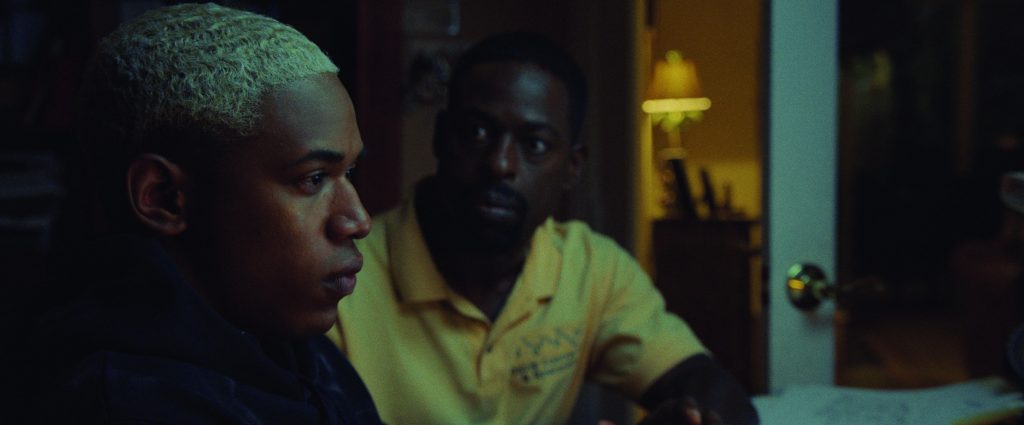
What’s something you hope viewers take away from the movie?
I hope that people start to realise how important it is to take care of yourself. I think it’s important to keep people around you that cultivate a healthy and important light in your life. Once you start to understand your worth as a person everything will start to reflect that.
Waves is in cinemas from 17th January 2020





